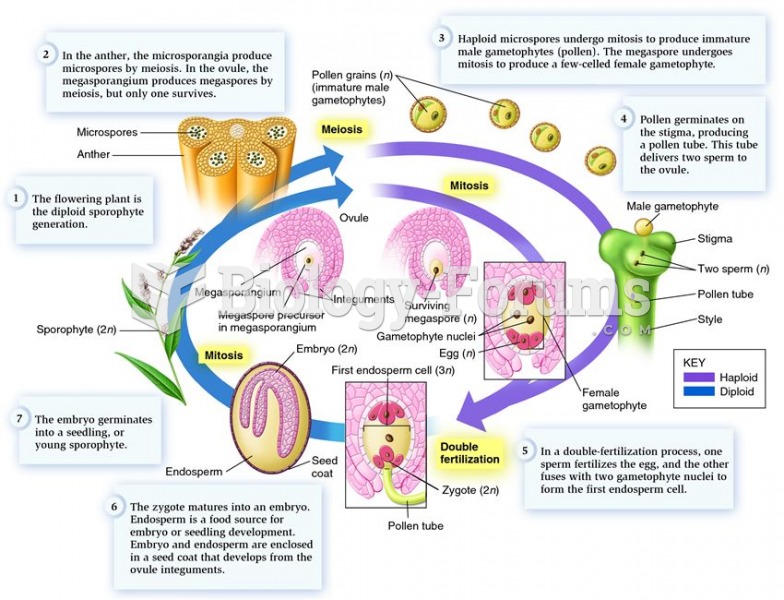|
|
|
Though “Krazy Glue” or “Super Glue” has the ability to seal small wounds, it is not recommended for this purpose since it contains many substances that should not enter the body through the skin, and may be harmful.
Certain topical medications such as clotrimazole and betamethasone are not approved for use in children younger than 12 years of age. They must be used very cautiously, as directed by a doctor, to treat any child. Children have a much greater response to topical steroid medications.
In the United States, there is a birth every 8 seconds, according to the U.S. Census Bureau's Population Clock.
The types of cancer that alpha interferons are used to treat include hairy cell leukemia, melanoma, follicular non-Hodgkin's lymphoma, and AIDS-related Kaposi's sarcoma.
All patients with hyperparathyroidism will develop osteoporosis. The parathyroid glands maintain blood calcium within the normal range. All patients with this disease will continue to lose calcium from their bones every day, and there is no way to prevent the development of osteoporosis as a result.
 Aurora australis observed from the Space Shuttle Discovery, on STS-39, May 1991 (orbital altitude: 2
Aurora australis observed from the Space Shuttle Discovery, on STS-39, May 1991 (orbital altitude: 2
 The urinary system: kidneys, ureters, bladder, and urethra with expanded view of a nephron and the u
The urinary system: kidneys, ureters, bladder, and urethra with expanded view of a nephron and the u





